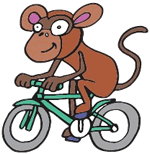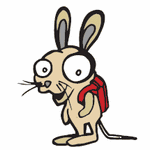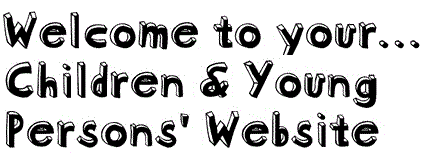
What About Common Problems?
Advice for most common problems can be found on the following websites
- NHS Choices,
- Nottinghamshire Concerning Behaviour Pathway,
- A Place to Call Our Own (APTCOO),
- Nottinghamshire Help Yourself,
- IRIS (Information for parents of children with special educational needs)
- Health for Teens
- Integrated Childrens disability service Nottinghamshire County Council provides a wide range of support to children and young people with special educational needs and disabilities (SEND) and their families.
- Small Steps 07966 528 940
For more information see our ADHD patient information leaflet.
The Library and Knowledge Service at King's Mill Hospital have a wide range of books and resources which can be loaned to patients and families. Search their catalogue by typing "child health collection" into the searchbox. Contact our library on 01623 622515 ext 4009 for more information.
Behaviour
Children/Young People with ADHD may struggle to know how to control and express their feelings, emotions and behaviour.
For example, they may have problems concentrating in class which may mean they miss what has been asked of them or they may find it hard to make new friends or keep friendships.
Children/Young People may feel that they get upset/angry and overly excited at times and this may cause them to worry about their behaviour.
For more information see our behaviour patient information leaflet.
Mental Health difficulties
Some children and young people with ADHD can also have difficulties with their emotional and mental health. This can include anxiety, depression, obsessional/compulsive behaviours, self harm or suicidal thoughts. It is important that you share these worries as help is available.
These problems should be discussed with your keyworker, and GP who may consider referral to the local Child and Adolescent Mental Health Service for either consultation or an appointment.
Parents, and young people aged 12-18 years can self refer to CAMHS – 0115 8542299 or see CAMHS website
The Mental Health and Growing Up factsheets on the Royal College of Psychiatrists website contain information on a wide range of subjects from anxiety to tantrums.
Please note that none of the information given here should replace discussion with your GP.
For more information see our emotions patient information leaflet.
Social skills
It is important to practice your social skills to prepare you for the future. There are a number of activities you can take part in with other people, some of these are specifically for children with similar difficulties.
Visual Aids and Social Stories
To help understand the world around you/your family some people find it useful to use visual aids – these are pictures which show you what you need to do – for example when you are getting ready for school, or what to expect in a new situation eg on holiday, and to break things down to make them easier.
Some people use social stories which help them to understand how they should act in different social situations eg turn taking, catching the bus. Sometimes other people may need to give you more time to do what they ask. This will help you.
Fine Motor difficulties
Children/young people with ADHD often find coordination more difficult for example skills such as using a knife and fork, catching a ball and tying shoelaces.
Children who are at primary school may be able to access the Funfit programme at their school. You should ask your school teacher if you are able to do this at your school.
Our occupational therapy service recommends Box of Ideas
Sleep
Children/Young People with ADHD commonly have problems with sleep. This has a number of causes including worries about sleep or being alone/in the dark, not understanding the routine of the day or differences in sleep patterns.
Your local health visitor, school nurse or children's centre may be able to advise your further.
For more information see our sleep patient information leaflet.
School
Children and young people with ADHD may enjoy the routine and learning challenges at school, and flourish in this environment, but some may need extra support with their learning.
There are other children/young people with ADHD who have additional learning difficulties or delay. Others find school hard because of: the school work; the other children; anxiety; the environment eg classrooms, noise or misunderstandings etc
Some children/young people do not have difficulties in primary school, but may struggle when they move to secondary school.
These problems can all impact of a child or young person’s ability to achieve.
If you are having problems, you should
1. Discuss them with your keyworker and with school
2. Contact your local parent partnership team for additional support
3. A small number of children/young people require additional support from their school or local authority. For more information see
- Nottinghamshire Concerning Behaviour Pathway website
- Nottinghamshire Special Educational Needs and Disabilities webpage
- Independent Parental Special Education Advice (IPSEA)
Adolescents/Transition to adult services
Adolescence can be a difficult time especially if you have ADHD as well. You may require support around a number of different things including your emotional health, sexual health and relationships and transition to adult services.
Health for Teens - information for young people provided by the NHS
SExions
Central booking number: 01623 672260 SEXions is a confidential sexual health service for young people aged 13-19, and up to 24 for young people with disabilities.
Integrated children's disability service - transition support
For more information see our transition support patient information leaflet.
If you are taking medication for ADHD, you may have thoughts or queries about this. You should discuss these with your Doctor and make a plan together. You should not stop your medication without discussion.
If you are still taking your medication when you reach the age of 18 years you will be referred to the local adult ADHD service.
The websites mentioned above are for information purposes only and are not under the control of the Trust. As such, the Trust does not give any commitments or accept any liability to you in respect of the content provided by the third parties.


